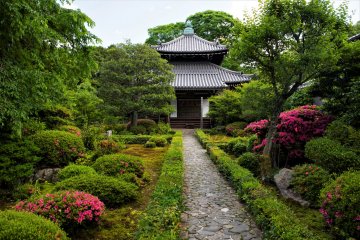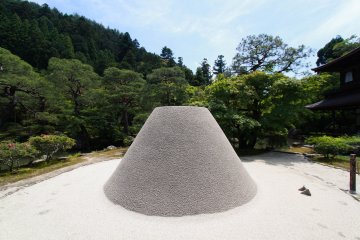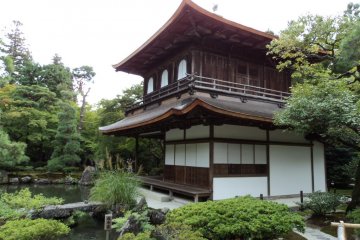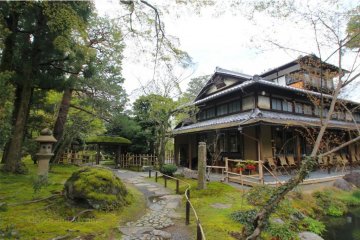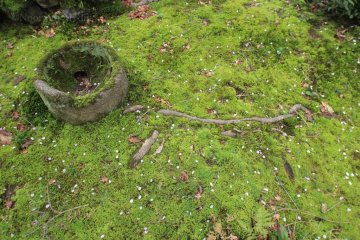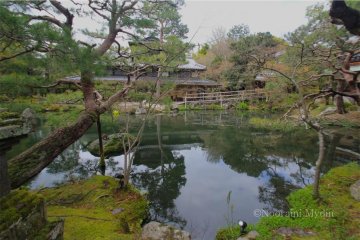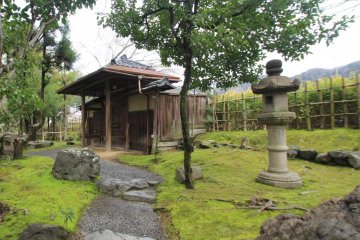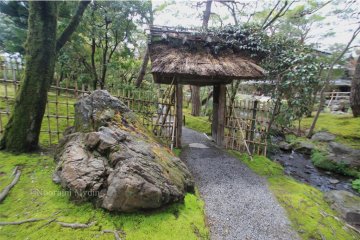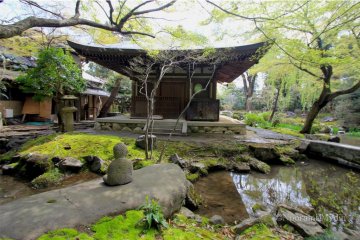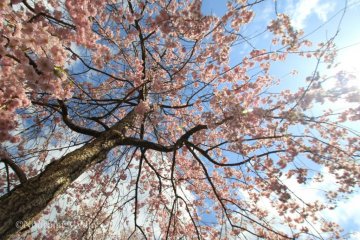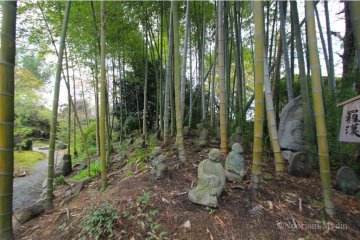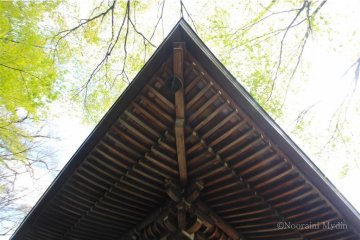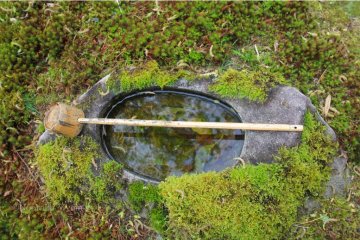One of the benefits of independent travel is finding places not on your travel itinerary. After getting my fill of the lovely Sakura blossoms on the Path of Philosophers, I crossed over to the row of cafes and had a lovely snack at the Bear Café. Picking up my route again to get to the Ginkaku-ji temple, I glimpsed these lovely gardens and decided to explore.
Hakusasonsô Hashimoto Kansetsu was the residence of a distinguished Kyoto artist, Hashimoto Kansetsu who was born in 1883. He had travelled extensively in China and had also visited Europe and his paintings are said to have been inspired by the Chinese landscape and Chinese classical literature.
He was at the forefront of the Sino-Japanese artistic exchange. He had set up the artists’ group called Kaiisha, together with some other Japanese artists, which brought Chinese artists, Wang Yiting, Liu Haisu, and Qian Shoutie. His brand of painting was called shin-nanga or "new literati painting.” His house is now a museum where his artwork is displayed.
The gardens are an oasis of calm and tranquillity despite its proximity to the bustling the Path of Philosophers; so unobtrusive that people walking along the path to get to the Ginkaku-ji temple usually miss it.
The grounds are covered in lush green moss, which brings out the brown of the buildings. Stone pagodas and lanterns scatter throughout the gardens while stone sculptures from the Heian and Momoyama eras are spread around a bamboo grove, like little people deep in prayer.
Just like Japan’s temple gardens, Hashimoto had strategically placed stones around the gardens based on the principles laid down in Sakuteiki, the ancient Japanese garden manual.
His house overlooks a tranquil pond with colourful koi; a sanctuary for ducks and herons. The surrounding trees are home to a multitude of birds, their symphony beckoning me to sit down and immerse myself in the tranquillity of this green heaven.
As I head back to the gate a Sakura in full bloom reminds me that the hundreds of cherry trees that have made the Path of Philosophers a favourite attraction were actually planted by Kansetsu and his wife; a living tapestry, testament to an illustrious life.



